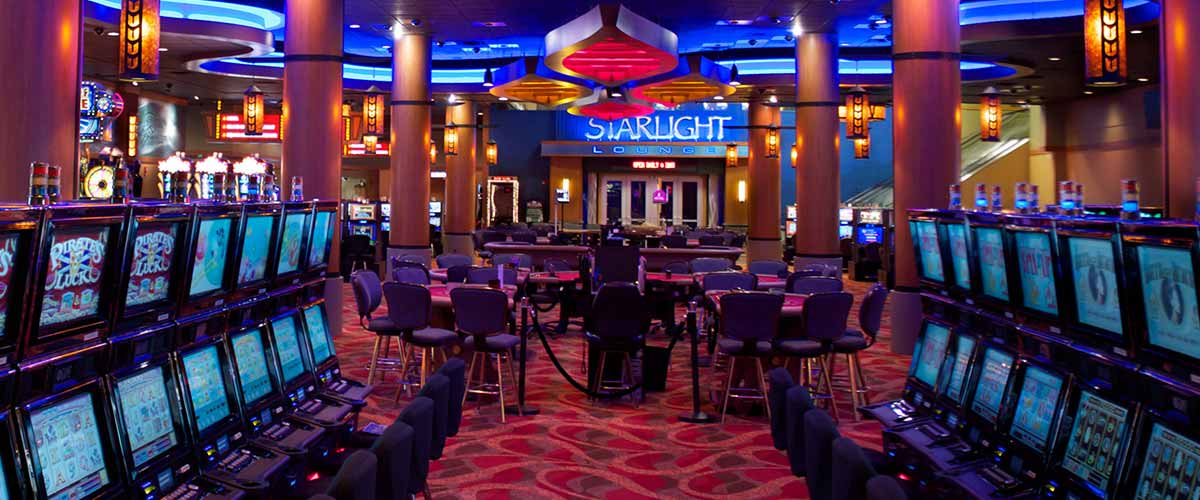
The remarkable Progression of Casino Gaming Games Through the Ages

Casino experiences have captivated players throughout history, evolving from easy diversions to complex experiences that combine fortune, skill, and entertainment. From the ancient roots of gambling in cultures like Mesopotamia and Rome to the dazzling corridors of current casinos, the history of these games shows much about human nature and our connection with luck. As cultures blended and technology has advanced, casino games have evolved, mirroring shifts in society and advancements in gameplay.
The initial iterations of gambling likely featured elementary games involving dice and wagering on the results of athletic contests. Over time, these primitive activities grew into more structured games like card games, roulette, and the myriad slot games that fill casino floors today. Each period brought its unique rules, aesthetics, and cultural importance. At present, casino games persist in evolving with the rise of digital gaming platforms, enabling players from all corners of the globe to join in a collective experience, further fusing the traditional with the age of technology. VU88
Ancient Origins of Casino Activities
Casino activities have origins that reach back to historical societies, where wagering was deeply embedded in social practices and social rituals. The earliest known instances of gambling developed in ancient Mesopotamia around three thousand BC, featuring basic die activities made from knuckle material. These primitive activities laid the groundwork for more complex betting activities, showing human beings' instinctive urge to pursue fortune and entertainment through chance.
As civilizations progressed, so did their betting interests. In historic China, around two thousand three hundred BC, objects were found that resembled early basic versions of a lottery game activity. More organized forms of betting arose in the Roman Empire, where games of luck were a frequent pastime, often occurring in community gatherings. The ancient Romans developed different betting activities, which entailed die and board games, illustrating the pervasive nature of betting across various economic strata.
With the passage of ages, these primitive activities influenced the evolution of modern gambling activities. In the Middle Ages, card games emerged prevalent in Europe, paving the way for the organized gambling establishments we know today. The shift from casual gambling to formal gaming in taverns and private houses marked a major change in how people interacted with activities of chance, leading to the eventual creation of gaming houses as dedicated venues for gambling.
The Growth of Contemporary Casino Gaming
The late 20th century marked a significant shift in the world of gambling games, propelled by tech innovations and shifts in societal views towards betting. The emergence of computers and the internet revolutionized the way gamblers interacted with their favorite games. Virtual casinos emerged, enabling gamers to enjoy classic casino classics like poker and 21 from the convenience of their houses. This new digital landscape not only expanded availability to casino games but also drew in a fresh audience who found the convenience and diversity appealing.
As online gambling gained momentum, so did innovations in gaming technology. The creation of sophisticated software and visual elements changed classic gambling games into captivating experiences. Players could now interact with realistic dealers through live streaming, importing the vibe of physical casinos directly into their homes. This blending of live gaming with online platforms created a unique hybrid experience that elevated the social aspect of gambling, allowing it possible for individuals to engage and challenge with fellow gamers around the world.
Additionally, the rise of mobile gaming substantially changed the casino landscape. With the widespread use of mobile phones and touch devices, gamblers can enjoy their favorite casino games anywhere, anytime. Mobile apps offer a wide selection of options tailored for touchscreens, serving the dynamic daily life of modern users. This accessibility has led to rising participation in gambling, contributing to the surge of the gaming industry. As a result, the outlook of the gaming industry continues to develop, responding to new technologies and changing player expectations.
How Technology Influences Casino Games
The evolution of technology has significantly transformed casino games, improving the overall gaming experience for gamblers globally. As the internet emerged, online casinos emerged, allowing players to enjoy their favorite games from the safety of their own homes. This change not only made casino games more accessible but also increased the variety of games offered, as online platforms could offer many different versions of traditional games without the limitations of physical casinos.
Mobile technology further transformed the casino gaming landscape. As smartphones and tablets became widespread, players can to play casino games whenever and wherever they want. This flexibility has resulted in the development of dedicated mobile applications and optimized websites that provide seamless gaming experiences. Additionally, advancements such as live dealer games have brought the authentic atmosphere of a casino into players' homes, connecting between physical and online gaming.
Furthermore, advancements in AI and virtual reality are leading to the next generation of casino games. AI improves game design and player interaction, creating tailored experiences based on user behavior and preferences. Meanwhile, virtual reality provides immersive environments where players can engage in a virtual casino environment, making the gaming experience more exciting and lifelike. As technology continues to evolve, the future of casino games seems bright, filled with endless possibilities for innovation and entertainment.
